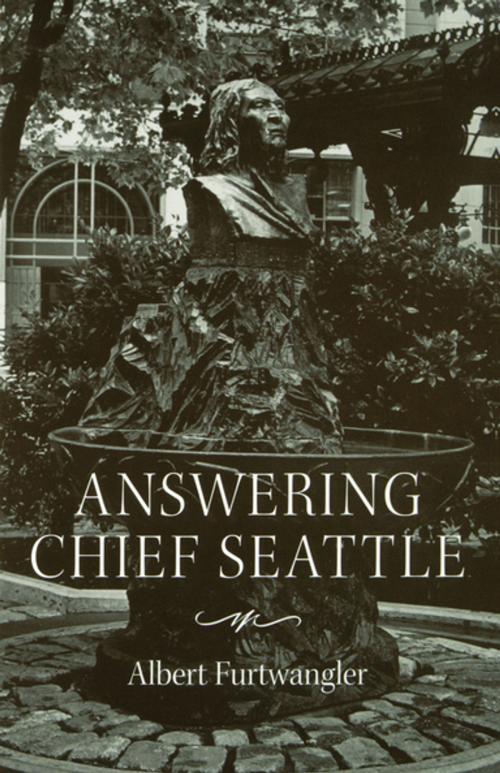Answering Chief Seattle
Nonfiction, Social & Cultural Studies, Social Science, Cultural Studies, Minority Studies, Native American Studies| Author: | Albert Furtwangler | ISBN: | 9780295800387 |
| Publisher: | University of Washington Press | Publication: | October 1, 2011 |
| Imprint: | University of Washington Press | Language: | English |
| Author: | Albert Furtwangler |
| ISBN: | 9780295800387 |
| Publisher: | University of Washington Press |
| Publication: | October 1, 2011 |
| Imprint: | University of Washington Press |
| Language: | English |
Over the years, Chief Seattle's famous speech has been embellished, popularized, and carved into many a monument, but its origins have remained inadequately explained. Understood as a symbolic encounter between indigenous America, represented by Chief Seattle, and industrialized or imperialist America, represented by Isaac L Stevens, the first governor of Washington Territory, it was first published in a Seattle newspaper in 1887 by a pioneer who claimed he had heard Seattle (or Sealth) deliver it in the 1850s. No other record of the speech has been found, and Isaac Stevens's writings do not mention it Yet it has long been taken seriously as evidence of a voice crying out of the wilderness of the American past.
Answering Chief Seattle presents the full and accurate text of the 1887 version and traces the distortions of later versions in order to explain the many layers of its mystery. This book also asks how the speech could be heard and answered, by reviewing its many contexts. Mid-century ideas about land, newcomers, ancestors, and future generations informed the ways Stevens and his contemporaries understood Chief Seattle and recreated him as a legendary figure.
Over the years, Chief Seattle's famous speech has been embellished, popularized, and carved into many a monument, but its origins have remained inadequately explained. Understood as a symbolic encounter between indigenous America, represented by Chief Seattle, and industrialized or imperialist America, represented by Isaac L Stevens, the first governor of Washington Territory, it was first published in a Seattle newspaper in 1887 by a pioneer who claimed he had heard Seattle (or Sealth) deliver it in the 1850s. No other record of the speech has been found, and Isaac Stevens's writings do not mention it Yet it has long been taken seriously as evidence of a voice crying out of the wilderness of the American past.
Answering Chief Seattle presents the full and accurate text of the 1887 version and traces the distortions of later versions in order to explain the many layers of its mystery. This book also asks how the speech could be heard and answered, by reviewing its many contexts. Mid-century ideas about land, newcomers, ancestors, and future generations informed the ways Stevens and his contemporaries understood Chief Seattle and recreated him as a legendary figure.















